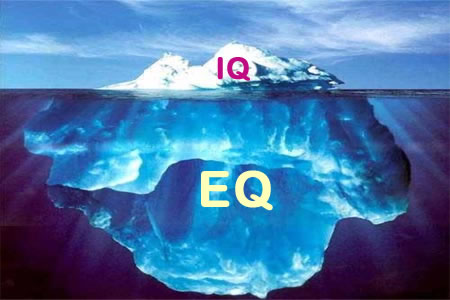
Loyola University Chicago
Stritch School of Medicine

Emotional Intelligence
What is it?
How does it work for you?
Goals of This Module
This learning module has been designed to:
Emotional Intelligence
Definition:
"Emotional Intelligence, quite simply, is the ability to make healthy adaptive choices
based on our ability to identify, understand and manage our own emotions and the
emotions of others."
Mitchel Adler, Psy. D
Support for EI Development
"Principles of Emotional Intelligence, reflective practice, and mindfulness can be applied
to enhance professionalism and overall physician performance."
Lucey and Souba –
Journal of Academic Medicine, June 2010

Why Is Emotional Intelligence Important




Our Emotions
If Emotional Intelligence is about emotions we need to consider the relevant human affective states.
The five basic emotions are:
All the rest tend to be combinations or variants of these....
Attention to our emotional state means becoming aware, and attending to these common emotional states.

Definition
Emotional Intelligence:
Emotional Intelligence, quite simply, is the ability to make healthy adaptive choices based on our ability to identify,
understand and manage our own emotions and the emotions of others.
IThe dimension of intelligence responsible for our ability to manage ourselves and our relationships with others
Emotional Intelligence explains why, despite equal intellectual capacity, training, competency, or experience, some
people excel in life while others with comparable knowledge or skills (or even superior intellectual capacity) fail or flounder.
The skills that are part of Emotional Intelligence are no longer considered "soft skills" but have been successfully measured
and quantified with more than 25 years of research to support these findings.
The skills related to Emotional Intelligence can be learned at any age or stage of human development.
Emotional Intelligence skills contribute to personal and professional success just as much as knowledge and competency.
Domains of Emotional Intelligence
There are four realms or domains of Emotional Intelligence:
Self Awareness
Self Management
Social Awareness
Relationship Management


Personal Competency
The Personal Competencies include Self-Awareness and Self-Management
Each domain has its own specified skills as listed below:
Self-Awareness
Self-Management
Self Awareness Strategies

Self Management Strategies

Social Competence
The Social Competencies include Social-Awareness and Relationship Management
Social Awareness
Relationship Management
Social Awareness Strategies

Social Management Strategies

Relationship between Emotional Intelligence and Physician Performance
Professionalism
EI = achievement, service, impulse control, initiative, integrity, transparency, confidence, clinical competency
Interpersonal skills
EI = self-awareness, empathy, mentoring
Communication skills
EI = conflict management, building bonds, influence, self-awareness, transparency, optimism
Ability to Work as part of an Interdisciplinary Team
EI = adaptability, collaboration, organizational awareness, empathy, building bonds

Performance Myth
Myth:
Physician behavior will change when they see data that demonstrates their conduct impacts patient care and they are 'outliers' among their peers.
Fact:
Emotions, values and beliefs have a far greater influence over behavior than knowledge. Under stressful circumstances, human factors and conditioned responses usually trump knowledge and intellect
The Dilemma
This requires a paradigm shift because we cannot motivate the right behaviors from people who:
Solution
Cornerstones for Performance Improvement and Patient Safety:
Are Emotional Intelligence Skills a Panacea for Human Performance?
NO!
They do not supersede clinical competency.
BUT EI skills are the missing link that can help better translate competency to performance
Factors that Influence Behavior and Why Change is Difficult
Steps for Developing your EQ skills:
Use Emotional Intelligence Skills To…
Communication and Team Functioning
Practical Suggestions

A Final Thought
" In the fields, I have studied, emotional intelligence is much more powerful than IQ in determining who emerges as a leader.
IQ is a threshold competence. You need it , but it doesn't make you a star. Emotional intelligence can"
Warren Bennis, author of On Becoming a Leader

Exploring Emotional Intelligence During an Interview
Sample Questions
